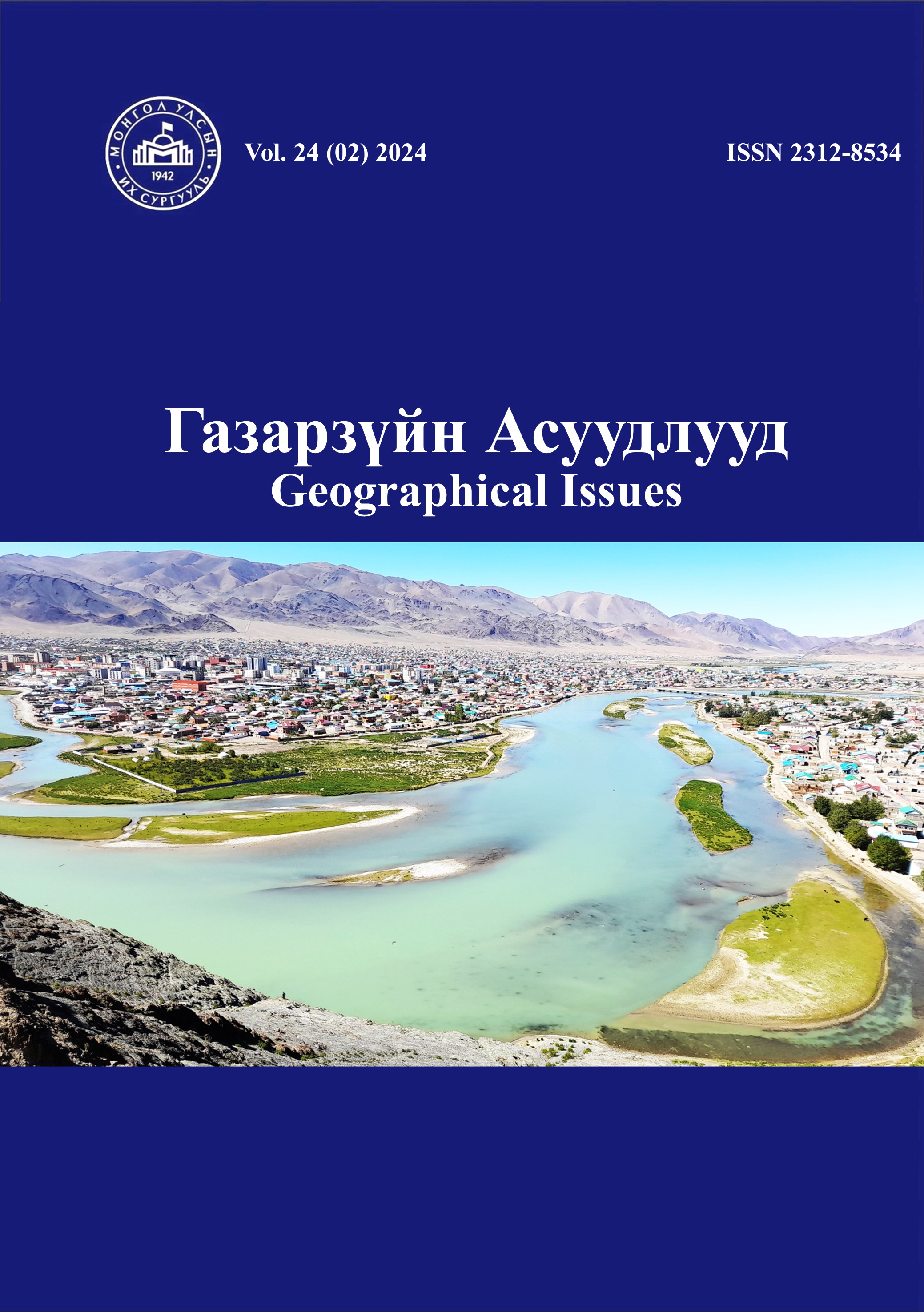The Impact of COVID-19 on Mongolian Nomadic Society
Монголын малчин ардад ковид 19-ийн үзүүлсэн нөлөөлөл
Keywords:
Pandemic in Mongolia, Nomadic Life, Rural Geography of the Ulaanbaatar Metropolitan Area, Altanbulag soumAbstract
This study investigates the impact of the COVID-19 pandemic on Mongolia’s nomadic society, particularly following the severe winter disaster known as Dzud in 2023-2024, which resulted in over 5.2 million livestock deaths. Research was conducted in Altanbulag sum and the adjacent Hustai National Park, focusing on the socio-economic and health-related challenges faced by nomadic families. Structured interviews were conducted with 29 nomads, complemented by Geographic Information Systems (GIS) spatial analyses. The findings reveal that 34% of households experienced COVID-19 infections, with varying economic impacts: 35% reported decreased income due to reduced mobility and trade disruptions, while 55% saw no significant change, and 10% reported income increases, mainly attributed to fewer livestock slaughters for hospitality purposes. Traditional health practices, such as dietary reliance on horse meat and dairy products, were utilized alongside modern medical advice to manage the pandemic’s effects. The study highlights the resilience of nomadic communities and underscores the need for tailored policy responses to support these populations during global health crises.
Downloads
Downloads
Published
How to Cite
Issue
Section
License

This work is licensed under a Creative Commons Attribution-NonCommercial-ShareAlike 4.0 International License.






